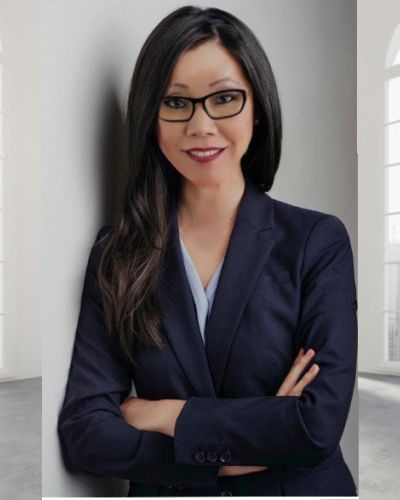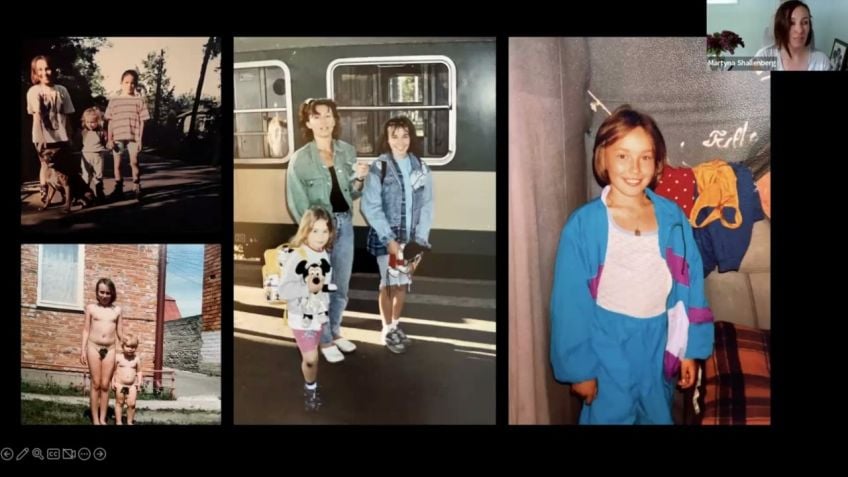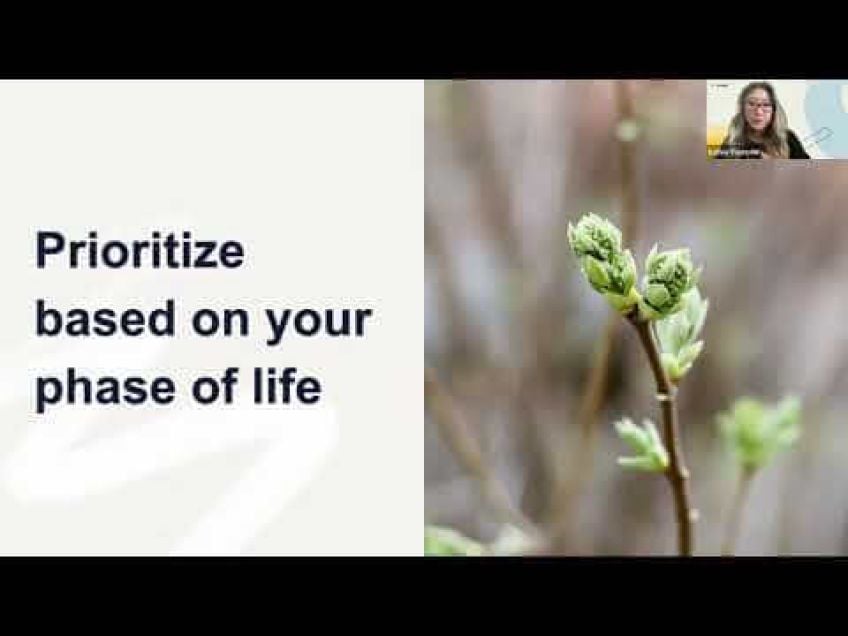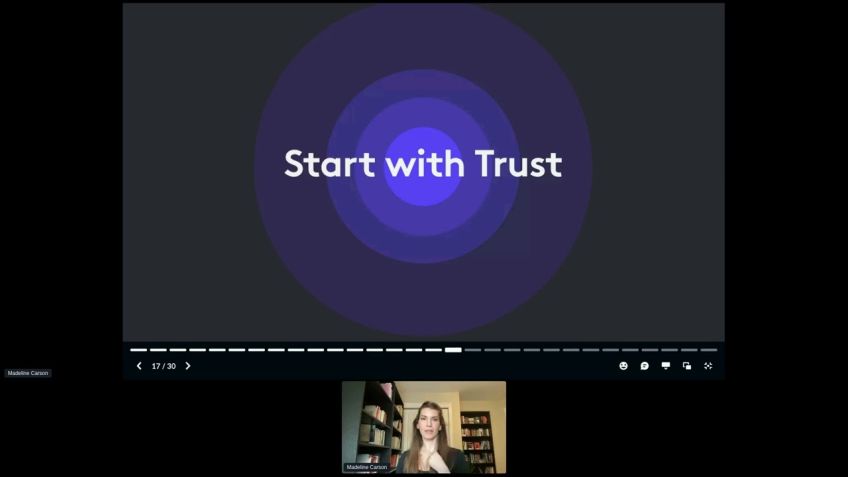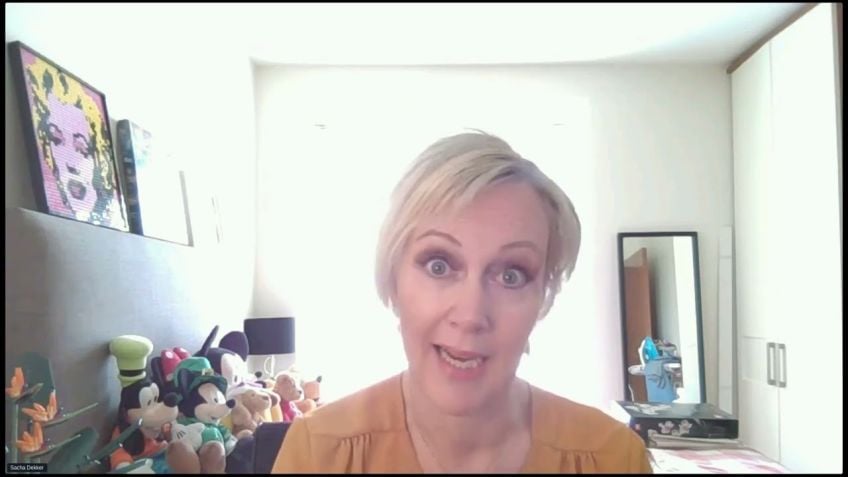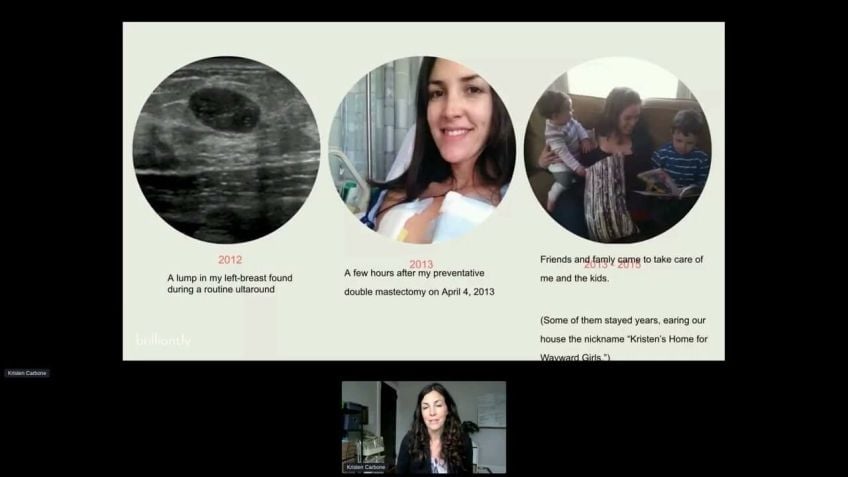Redefining Resilience: How Beating Stage 4 Cancer Empowered Me to Take Charge of My Career in Tech
Lisa Milani
Global Vice President, Strategic Partnerships & EcosystemsLisa Milani: From Stage Four Cancer to a Career in Tech
Hello and welcome to our fascinating conversation about resilience, determination, overcoming challenges, and breaking barriers. Today we will be delving into how one woman, Lisa Milani, managed to take charge of her career in tech while battling stage four breast cancer and juggling her personal life.
The Journey Begins
Lisa Milani, the Global Vice President of Varie in Strategic Partnerships and Ecosystems, is not only a breast cancer survivor but a proud woman in tech. Reflecting back on her childhood, she'd always aspired for a career in tech and IBM was her dream company. Unforeseen personal circumstances and a life-threatening illness, however, provided significant challenges on her road to fulfillment.
A Bump on the Road: The Diagnosis
On September 8, 2021, Lisa was diagnosed with stage four breast cancer, forcing her to re-evaluate her priorities. Three major thoughts crossed her mind at that time:
- Who would look after her adult daughters when she was gone?
- How the diagnosis would affect her promising career?
- What would happen to her faithful canine companion?
After enduring many hurdles and obtaining a multitude of opinions, Lisa fortunately found a center that was willing to treat her. Following 5.5 months of chemotherapy, a double mastectomy, and 38 sessions of radiation, and two clear scans later, she was declared 100% cancer-free. This experience taught Lisa valuable life lessons and reshaped her approach to balancing her career and personal life.
Becoming your own Advocate
Learning to advocate for herself was a crucial lesson for Lisa. She learned about the corporate policies at her company regarding her illness and found out she did not need to divulge her medical details to her manager. This revelation propelled Lisa to adopt a new perspective on her life priorities, placing her health above her career.
The Intersection of the Cancer Journey and the Tech Journey
While cancer was undoubtedly a significant challenge, Lisa reflects on her career in tech and acknowledges the multitude of challenges she had to face. Being a woman in a male-dominated industry meant that Lisa had to work harder for her place. However, Lisa turned these challenges into learning opportunities, developing a determination to be successful that was unshakeable.
Breaking Barriers in Tech
Lisa shares some strategies that helped her break barriers in a male-dominated tech industry. These included joining women's tech networks, finding a mentor, mentoring others, trusting her boss, and developing her personal brand. She emphasizes the importance of perseverance, stating, "_No matter how many nos you hear, keep going until you get a yes._"
Prioritizing Health and Taking Control
Today, Lisa is a testament to the power of resilience and determination. She is a proud owner of a dog, living a fulfilled life while actively participating in the tech industry. Her story serves as a beacon of hope and inspiration for those facing similar problems or struggling to balance personal and professional lives. Lisa's bold advice, "_If you don't trust your boss, or your value isn't being appreciated, move on_", is refreshingly candid and invaluable for anyone seeking to evolve in their tech careers.
Inspirational Takeaways
Lisa’s story exemplifies the power of resilience, determination, and the ability to overcome significant personal and professional hurdles. Her ability to navigate a male-dominated tech industry, while juggling a serious illness and personal responsibilities, offers an invaluable lesson in perseverance and courage. Lisa’s journey serves as an inspiration for everyone, demonstrating that it's never too late to achieve your career goals, that struggles can be overcome, and personal health should always be prioritized.
Feel free to connect with Lisa on LinkedIn to access the video which highlights her impressive journey. Lastly, we hope that this blog post serves as a source of inspiration and a guiding light as you navigate your careers, face life's challenges and break barriers of your own.
Video Transcription
Perfect. Well, hello everybody. I'm so excited to be on this call today and sharing my story. I was very, very honored to be accepted to be one of the speakers. Um Today, what I'm gonna be talking about is truly my story. It's twofold.It's part, you know how beating stage four cancer empowered me to take care, you know, take charge of my career and tech, but also what it took as far as breaking barriers and whatnot to get to the point that I am in this industry. So once again, my name is Lisa Milani. I'm the global vice president of varie in strategic Partnerships and ecosystems. Uh And I have held careers both at Sap and at Oracle. So by ways of introduction, you know, I am a breast cancer survivor. Moreover than that, I am a woman in tech. I raised two daughters as a single mom. And I have to say right away in the beginning, I've always wanted a career in tech. You know, I remember being eight years old and my friend, they were talking about the different careers while we were playing Barbies and you know, I remember them shouting out flight attendant or marketing or design or interior decorators. And I at the time that I was growing up, the only real tech company that we could compare anything to was IBMIBM was super popular in the eighties and in the seventies when I grew up. So I always would tell people I just want to work at IBM.
So again, I'm super excited to share my story with you. And really what came out of my diagnosis was truly, I would say a theme of resilience and determination not to let my diagnosis take away from my life. So to back up a little bit on September 8th of 2021 I was diagnosed with breast cancer. I was living in Chicago at the time and I was going to Northwestern, but it was right on that cusp. But when um COVID, we had the quarantine, the quarantine was over, but the health care systems or the hospitals still were not back into their normal routine. So getting an appointment done in Chicago right before my diagnosis, this was close to impossible because when I was going in, you know, for the type of exams that I needed, I wasn't getting on their calendar other than remote meetings, which really obviously with a diagnosis like mine were, were not of any value.
So I was diagnosed in September tw um eighth, I was told that I had stage four breast cancer. I was told that I had three years to live and that only 28% of the people with my diagnosis will make it to five years. And I have to tell you in that moment of that diagnosis, there were three main thoughts that went through my head. First of all, as a single mom, I thought, who's gonna watch my Children? I mean, my Children are adult, you know, they're beautiful, you know, adult, young women, um, both, you know, you know, 26 years old and 30 years old. So it wasn't that I was really thinking, you know, who's gonna watch my babies, but really who's gonna watch my daughters when I was gone. The other thing I thought about was my family. I come, you know, I was adopted, I come from a large family. I was raised as a child with four older brothers being me being the youngest and the only girl, unfortunately, as we were growing up, one of my brothers was killed in a, you know, he was hit by a car. And so it really weighed on me to have to face this diagnosis and go to my family and say after they've already lost, we already lost a brother that I had probably three years to live.
Oddly enough, my second thought really was, oh, and, you know, I should mention too, you know, it was right around the time too. I had gotten engaged to somebody that I had known for 10 years. You know, so it was really, really a challenging time to hear that diagnosis and it would be any time would be challenging to hear a diagnosis like that. But nonetheless, second thought I had was working career. You know, I have worked so hard to get in tech, you can imagine as a single mom. And I don't know if there's anybody else out here listening to this that has encountered these type of barriers and challenges. But I had truly felt I finally achieved everything I set out to do. And here I was with a terminal diagnosis and my third thought, oddly enough was my dog, you know, as a single mom, my kids were off, they were adults. I had a dog that was 16 years. I had just put her down four days before my diagnosis. So truly, what I was facing was, you know, the lyrics of a country music song because I thought of my kids, my career and my dog. And then I also thought, you know, I had planned to get another dog and now I can't even have those type of thoughts that were totally normal.
So after getting many multiple opinions and being told, no, I have to say, you know, with this grim diagnosis today, I can report then I can happily report that I'm 100% cancer free. I did go on and I finally found a cancer center Minnesota Oncology to treat me. They said that they would put me through, I went through 5.5 months of chemo. I went through a double mastectomy and I went through 38 sessions of radiation. I've had two scans and I'm cancer free. So, you know, and there's learning lessons that I definitely didn't expect to learn or have to learn after my diagnosis. But I want to recap those because I think that they really apply to anybody whether or not you have a diagnosis such as mine, let's say you're facing health, you know, health complications, you have major health issues. Let's say you have personal issues that would pull you away from work. We spend a third of our life at work. You know, really the reality is there's a really good chance the rest of our life could interfere with our normal discourse of our career. So, you know, I have to say number one, I had to learn how to advocate for myself.
That means, you know, not only with mayo, not only with Minnesota oncology, I had to learn how to advocate for myself within my company that I was working at, at the time of my diagnosis, I found out and I don't know if a lot of people knew this. I know, I, I know this is that I didn't have to tell my manager the details of my diagnosis. What I needed to do was get in contact with our hr business partner that was assigned to me and I needed to get the direction from the hr business partner, which is the direction was much different than I thought it would be. I was immediately connected with the accommodations team to really then talk about the details of my diagnosis. So again, that was a lesson learned that I did not have to tell my manager or even the hr business partner, the details of my diagnosis. You know, it was really important for me to master the policies at my company at the time to understand this. Um you know, such as what I just shared, not having to share this for my company's policies with my manager. You know, it allowed me, it, I can't say it allowed me, it more or less forced me to gain new perspectives. You know, the experience that I went through with the stage four, you know, cancer diagnosis, really inspired and motivated me to prioritize my health.
You know, up until then, especially working in tech, we know that the tech industry is a high performing industry that we are replaceable and that we might be doing something great and super and incredible and quarter. But in the next quarter, my experience is my brand resets.
So I have to be consistent in my brand and in my remit and my roles and responsibilities to maintain um you know, my brand. And by that, I always prioritize my career before my help. I had no issues working overtime weekends, answering calls during dinner. But today I have a brand new perspective on this. And then lastly, I really wanna encourage anybody listening to this. The same thing, please prioritize your health because without it, you can't be a high performing successful person in this industry. So overcoming challenges and you know, I'm a shift a little bit and I'm going to now incorporate what my career in tech has been. like, you know, I faced many challenges along the way, you know, being a female in the tech industry, I mean, that's hard enough as any women know, this is a male dominated industry, you know, it was a very challenging transition, but I was determined even as young as, you know, an eight year old that I was going to be in tech.
And once I was in tech, I kept that determination to be successful. So at age eight, as I mentioned, you know, I've always wanted to be in tech. But unfortunately, at age 37 I wasn't in tech yet. I hadn't finished my graduate degree. You know, my direction had changed. I didn't, I never planned to be a single mom, my divorce, you know, hit that wasn't planned. II I don't know many divorces that are planned. But then nonetheless, at age 37 I found myself as a single mom. I was working full time. I was trying to complete grad school and I was raising two young daughters at home. So what I needed to do and I stress this for anything I've ever been successful in is I needed to create a plan. And within this plan, there are some learning lessons, you know, and I'm talking about the plan, my plan to get to tech, my plan to be successful. You know, at first I needed to highlight my strengths and how resilient I was. You know, I'd heard a long time ago, one of my spiritual mentors had told me that women are like cups of coffee, you know, and we need to determine how strong is my cup of coffee. You know, my lukewarm and I mix with a lot of sugar and a lot of cream are my strong and, and you know, coffee is my coffee is strong and black. And do I am I focused in on exactly what I need to do.
So that an analogy I always had in the back of my head. You know, the other big thing is I had to finally allow myself to ask and accept help. You know, for me, I didn't know it was as hard to do until I was faced with having to do it. You know, I, again, I had a really good mentorship throughout my life. I had some somebody that said, you know what, you have to allow yourself to change the direction of the sale that you were aiming for when things happen, the other thing I always know is there's two modes that I should always be in, you know, from a work perspective, I've always practiced, you know, this theory that I'm either in the mode of preparation or I'm in the mode of execution.
So throughout my plan, I, you know, I, I put in time and, and it accounted for being in pre prepare mode or in execution. And then finally, I cannot say enough, you can never give up hope. There are so many times that I said there is no way I'm gonna accomplish this. Not with everything, not with my age, not with being a female in tech, not with raising two girls paying for their colleges and grad school, but I never ever gave up. So, you know, one of the last things I do want to talk about, make sure that I have time to speak about is breaking barriers. You know, there are so many barriers that we encounter. You know, first of all, as I mentioned, we're in a male dominated industry. What are the barriers that we have to do as women to even get us a leveled on the playing field? You know, one of the things that I always look for in the company is I joined the women's tech, you know, networks or the women's the business networks. You know, there's opportunities for us to start lean in circles or participate in lean in circles. Another important thing. And I've kind of mentioned it throughout the time is, you know, I work with a mentor, you know, not only do I find an executive mentor, number one, it has to be a woman, it has to be somebody that has achieved the career goals that I want to achieve.
Meaning you've been there. Can you show me how you got there type of conversation? And then moreover, I always make myself available to mentor as well. I don't think that this mentorship, you know, program or a mentorship program is complete. Even if it's not a formalized program, it's not complete until you pass on what you've learned from people that have come before you, you know, you're gonna hear more. Nos I've heard so many nos in my life, especially when it comes to tech when, especially when it comes for applying for new roles or trying to get it on other teams or trying to come up with an initiative that you wanna own and be, you know, the creative author on, you know, there's so many nos that you're gonna hear.
But again, I just kept on going until I heard a Yeah, you know, and then lastly, I, and you know, real quickly trust your boss. That's been very, very critical for me. If I don't trust my boss, who am I going to trust, who's going to help me document my personal goals and help me achieve them if the trust isn't there. But lastly, what was really, really simple is I remember in college, one of the professors told us to write a brand called you and you know, I, I carry that practice over into my career. Each role I would write a brand that I wanted to be, you know, that I wanted to portray it and simply go be it. That was the last part that we missed out in our college professors lesson, create the brand. But then go be it. If you want a brand that says that you're overachieving, you're high achieving that you will get the stuff done that you will, you know that you will be open to help and support others, then follow up and go do it. That was my experience as, as a female version. So you know, let me go back here. I do have this video in here. It will be available. I don't want to waste time on this video because I wanna make sure that I get to the last slide.
If I still have time, I I might but if I, if I don't, I can provide the link to this video, but it's also on my linkedin. So for anybody who finds me on linkedin, feel free to connect with me. But lastly what I really want to talk about and again, with the last five minutes, I think it's more important to talk about. This is number one, what you see on the left is the picture of my dog, I remember over a year ago standing after my diagnosis, you know, in, in rural Minnesota looking at, uh, you know, a new dog and thinking this is before I was treated was I can't even buy this dog. I won't even be here long enough. So after my treatment and after my scans, one of the first things that I did is I went out and buy that dog that I, in fact, I bought him on Christmas. So it was a really great Christmas present to me after this last year that I went through. But you know, my last closing words is really, I truly hope that what you've heard today is the story of empowerment and inspiration. Again, even if you're not diagnosed with something as terminal or as serious as, as I have, we all face personal challenges, health issues, personal issues that could take us away from work.
So hopefully you can pull out some of the lessons that I learned and apply them to your own personal career growth. You know, I hope my in my story inspires you to take control of your own lives. You know, in closing, I want to say that you can truly overcome the gender barriers in the tech industry no matter what. So if you're somebody that's listening that has experienced this, just keep going. You can also achieve career success despite your own challenges. As I already mentioned, I was starting my career in tech at age 37 as a single mom, as somebody that, you know, didn't have the resources or the history or the network built that many people do at age 37 in tech. You know, again, how strong on is your cup of coffee? You know, continue to ask yourself that when you're faced with these challenges, you know, challenge the norms, break the barriers in your own lives and careers. And if no one is listening, the most important thing I can say is move on. If you don't trust your boss, nobody's listening. Nobody is really appreciating the, the value that you bring to an organization. Really, I cannot encourage you enough. Move on before you wake up one day and you realize that you've been doing this for five years and you're still in the same place of not trusting your manager because the opportunities are out there. They are truly out there in the tech industry.
So again, I'm gonna close right now. I don't think I have time to run that video, but I wanna close with saying, thank you very much for listening to my session. All right, thank you.

